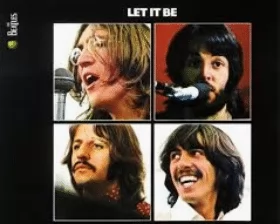
The 1970s were a decade of change, growth, and cultural shifts. We’ll review the best songs of the ’70s music that created a truly unique sound. As disco, funk, and rock music took over the airwaves, artists pushed the boundaries and experimented with new sounds and styles.
The 70s also saw the emergence of new genres like punk, new wave, and heavy metal. With so many iconic songs from this era, narrowing down the best of the best can be difficult. But fear not, as we have compiled a list of the top songs from the 1970s that have stood the test of time.
Top songs of the 70s
The 1970s marked a significant era in the music industry, with the emergence of various genres of music and legendary artists who shaped the industry.
Inspired by the legendary music of the ’60s, the decade saw the release of some of the most iconic and timeless songs that resonate with fans today.
From the disco beats of the Bee Gee’s “Stayin’ Alive” to the soothing melodies of Elton John’s “Your Song,” the era produced many hits that defined the decade.
Other notable songs include Queen’s “Bohemian Rhapsody,” Fleetwood Mac’s “Dreams,” and Led Zeppelin’s “Stairway to Heaven.”
The 70s was truly a golden age of music, and these songs remain a testament to its enduring legacy.
- Sex Pistols: God Save The Queen (1977)
- Roxy Music: Dance Away (1979)
- Bee Gees: Stayin’ Alive (1977)
Best rock songs of the 70s
The ’70s was a fantastic time for rock music and we witnessed the rise of legendary bands like Led Zeppelin, Pink Floyd, The Rolling Stones, and Queen, among others.
They created timeless classics that continue to inspire generations. The list of the best rock songs of the 70s is endless.
These songs defined the sound of the era and had a significant impact on popular culture.
Even today, they continue to be beloved by fans and are an essential part of any rock music collection.
- Queen: Bohemian Rhapsody (1975)
- Deep Purple: Smoke On The Water (1973)
- Lynyrd Skynyrd: Free Bird (1973)
Best disco songs of the 70s
When discussing the disco songs of the 1970s, one must first recognize this genre’s impact on popular culture.
The disco era brought a new dance and fashion era that millions embraced. The songs of this era were characterized by their upbeat rhythms, infectious melodies, and memorable lyrics.
These songs and many others continue to be celebrated for their energy and timeless appeal. Their influence can still be heard in modern music, making them an important part of the history of popular music.
- Gloria Gaynor: I Will Survive (1978)
- Bee Gees: Stayin’ Alive (1977)
- Lipps Inc: Funky Town (1979)
Best country songs of the 70s
As we delve into the musical landscape of the 70s, it’s hard to ignore country music’s impact on the industry.
The decade saw the rise of many legendary country artists, whose hits resonate with audiences today.
These songs, and many more, have left an indelible mark on the country music scene and continue to inspire new generations of musicians.
- Dolly Paron: I Will Always Love You (1974)
- Don Gibson: Woman (Sensuous Woman) (1972)
- Don Williams: You’re My Best Friend (1975)
Best love songs of the 70s
When discussing the best love songs of the 70s, it’s hard to ignore the romantic ballads that defined the era.
From the soulful crooning of Barry White’s “Can’t Get Enough of Your Love, Babe” to the upbeat disco rhythms of the Bee Gees’ “How Deep Is Your Love,” the decade produced timeless classics that still resonate with listeners today.
- Al Green: Let’s Stay Together (1972)
- Billy Joel: Just The Way You Are (1977)
- Marvin Gaye: Let’s Get It On (1973)
With various genres ranging from rock to disco, it’s no surprise that the 70s produced some of the most memorable and timeless hits.
These songs defined the sound of the 70s and continue to inspire and influence musicians today.
Related Content
- Forgotten Songs of the 60s
- Best Pets for Seniors – What To Look For
- 10 Tips for Frugal Retirement Living
- Top Hobbies for Seniors
- Best Social Activities for Seniors